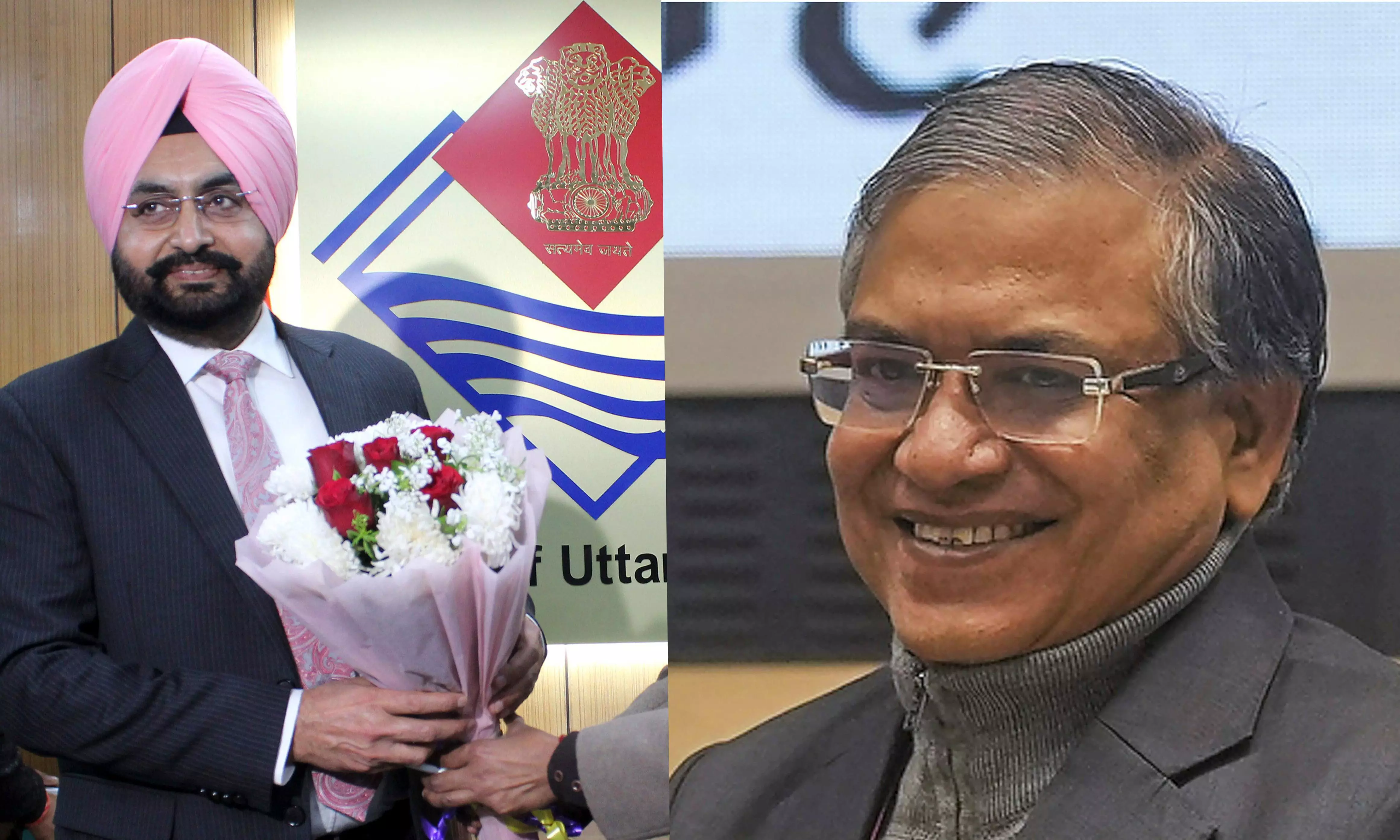New Faces for Election Commission Amidst Controversy
Bureaucrats Sandhu & Kumar appointed as Election Commissioners, sparking debate over selection process and judicial oversight

New Delhi: The committee led by Prime Minister Narendra Modi on Thursday selected former bureaucrats Sukhbir Sandhu and Gyanesh Kumar as the two new election commissioners, against the vacancies created by the retirement of Anup Chandra Pandey on February 14 and the sudden resignation of Arun Goel last Friday. The selection of the two officers comes a day before the Supreme Court is to hear petitions challenging the selection process of ECs.
Both IAS officers belong to the 1988 batch. Mr Sukhbir Singh Sandhu, originally from Punjab, is from the Uttarakhand cadre. He is a medical doctor by training. Mr Sandhu was appointed the chief secretary when Pushkar Singh Dhami became the chief minister of Uttarakhand in 2021. Before this he had served in the National Highways Authority and the ministry of education. Mr Gyanesh Kumar is a Kerala cadre IAS officer who hails from Uttar Pradesh. During his tenure in the home ministry, Mr Gyanesh Kumar oversaw the abrogation of Article 370 in 2019 as additional secretary. He had also served as cooperation secretary and Parliamentary Affairs Secretary.
They were picked from six names that were shortlisted, that had Utpal Kumar Singh, Pradeep Kumar Tripathi, Gyanesh Kumar, Indevar Pandey, Sukhbir Singh Sandhu, Sudhir Kumar Gangadhar Rahate, all former bureaucrats.
Giving the details of the meeting, Congress’s leader in the Lok Sabha Adhir Ranjan Chowdhury said he had submitted a dissent note over the process, adding that the government had amended the law to keep the Chief Justice out of the process. He said the CJI’s presence needed for neutrality and transparency as the government chose the one it wanted due to a majority in the committee. The previous meeting to pick an EC had been deferred.
“When Mr (Arun) Goel was appointed, the Supreme Court had made a ‘lightning speed’ remark. He came at lightning speed and left with digital speed,” Mr Chowdhury added.
The PM-led committee had two ministers -- Union home minister Amit Shah and law minister Ajrun Meghwal, who also heads the search committee; apart from the LoP or the leader of the largest Opposition party in the Lok Sabha. Mr Chowdhury said he had asked for the list of the shortlisted candidates, which he got barely hours before the meeting, while the final list of six candidates came 10 minutes before the meeting, which gave him little time to check about the candidates.
“It was fait accompli that the chosen two will be selected. However, I tried to intervene in an appropriate manner so as to bolster the institution. That’s why, before my arrival in Delhi, I sought a shortlist made before the selection by the law ministry. I got the list of 212 people very late, and 10 minutes before the meeting I was given the list of six candidates. I reached Delhi at around 12 am and the meeting was at 12 pm. Now you can imagine if, in a single night, it is humanly possible for me to examine 212 names and find out the most competent person among them. How could I have scrutinised the list and applied my mind on these candidates? Had I got this in time I would have gained more information about these candidates. There was no clarity on how six names were shortlisted from the list of 212 candidates. But since they have a majority in the committee, my agreeing or not does not matter,” Mr Chowdhury said.
However, sources said the government sent Mr Chowdhury five lists containing 236 names. The lists included the names of 92 officers who retired at secretary level at the Centre, 93 officers still serving at secretary level in the Government of India, 15 officers who retired as chief secretaries of states and Union territories in the last one year, and 28 officers serving as chief secretaries in states and eight in Union territories.
The Congress MP hit out at the Centre over the law that replaced the Chief Justice of India by a Union minister on the selection committee. “I know that the CJI is not there. The government has made such a law that the CJI doesn't interfere and the Central government can choose a favourable name. It has reduced the meeting to a mere formality… I am not saying that it's arbitrary but the procedure that is being followed has some lacunae,” said Mr Chowdhury.

